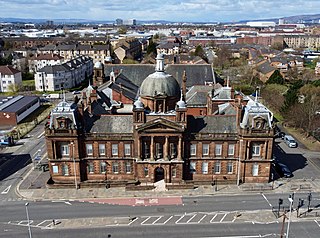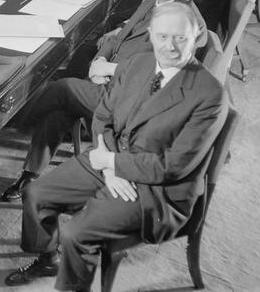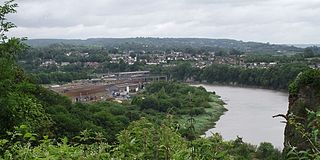Related Research Articles

Govan is a district, parish, and former burgh now part of south-west Glasgow, Scotland. It is situated 2.5 miles (4.0 km) west of Glasgow city centre, on the south bank of the River Clyde, opposite the mouth of the River Kelvin and the district of Partick. Historically it was part of the County of Lanark.
The Central Electricity Generating Board (CEGB) was responsible for electricity generation, transmission and bulk sales in England and Wales from 1958 until privatisation of the electricity industry in the 1990s.
Upper Clyde Shipbuilders (UCS) was a Scottish shipbuilding consortium, created in 1968 as a result of the amalgamation of five major shipbuilders of the River Clyde. It entered liquidation, with much controversy, in 1971. That led to a "work-in" campaign at the company's shipyards, involving shop stewards Jimmy Airlie and Jimmy Reid, among others.
The Metrication Board was a non-departmental public body that existed in the United Kingdom to promote and co-ordinate metrication within the country. It was set up in 1969, four years after the metrication programme was announced, and wound down in 1981.

The National Coal Board (NCB) was the statutory corporation created to run the nationalised coal mining industry in the United Kingdom. Set up under the Coal Industry Nationalisation Act 1946, it took over the United Kingdom's collieries on "vesting day", 1 January 1947. In 1987, the NCB was renamed the British Coal Corporation, and its assets were subsequently privatised.

The Fairfield Shipbuilding and Engineering Company, Limited was a Scottish shipbuilding company in the Govan area on the Clyde in Glasgow. Fairfields, as it is often known, was a major warship builder, turning out many vessels for the Royal Navy and other navies through the First World War and the Second World War. It also built many transatlantic liners, including record-breaking ships for the Cunard Line and Canadian Pacific, such as the Blue Riband-winning sisters RMS Campania and RMS Lucania. At the other end of the scale, Fairfields built fast cross-channel mail steamers and ferries for locations around the world. These included ships for the Bosporus crossing in Istanbul and some of the early ships used by Thomas Cook for developing tourism on the River Nile.
Ian Campbell was a Scottish politician who served as a backbench Labour Member of Parliament (MP) of the United Kingdom from 1970 to 1987.

The Abortion Act 1967 is an Act of the Parliament of the United Kingdom that legalised abortion in the UK on certain grounds by registered practitioners, and regulated the tax-paid provision of such medical practices through the National Health Service (NHS).
The Electricity Council was a governmental body set up in 1958 to oversee the electricity supply industry in England and Wales.

The Sexual Offences Act 1967 is an Act of Parliament in the United Kingdom. It legalised homosexual acts in England and Wales, on the condition that they were consensual, in private and between two men who had attained the age of 21. The law was extended to Scotland by the Criminal Justice (Scotland) Act 1980 and to Northern Ireland by the Homosexual Offences Order 1982.
The Home Affairs Select Committee is a departmental committee of the House of Commons in the Parliament of the United Kingdom.
Lithgows Limited is a family-owned Scottish company that had a long involvement in shipbuilding, based in Kingston, Port Glasgow, on the River Clyde in Scotland. It has a continued involvement in marine resources.

Research Councils UK, sometimes known as RCUK, was a non-departmental public body that coordinated science policy in the United Kingdom from 2002 to 2018. It was an umbrella organisation that coordinated the seven separate research councils that were responsible for funding and coordinating academic research for the arts, humanities, science and engineering. In 2018 Research Councils transitioned into UK Research and Innovation (UKRI).

Thorpe Marsh Power Station was a 1 GW coal-fired power station near Barnby Dun in South Yorkshire, England. The station was commissioned in 1963 and closed in 1994. In 2011, permission was given for the construction of a gas-fired power station on the site.

Sir James Lithgow, 1st Baronet, was a Scottish industrialist who played a major role in restructuring the British shipbuilding and steelmaking industries in the 1930s in addition to playing an important role in formulating public policy and supervising wartime production.

The Burntisland Shipbuilding Company was a shipbuilder and repairer in Burntisland, Fife, Scotland that was founded in 1918. In 1969 it was taken over by Robb-Caledon Shipbuilders, which in turn was nationalised in 1977 as part of British Shipbuilders.

The National Shipyards, in the United Kingdom, were an initiative to expand merchant ship production during the First World War, proposed and partially completed by the coalition government led by David Lloyd George.

The Naval Recruitment Training Agency (NRTA) originally called the Naval Training Department was first established in 1944 as a department within the Admiralty it underwent numerous name changes until 1 April 1995 as a new agency of the Navy Department of the British Ministry of Defence. Its role was to contribute to the operational capability of the United Kingdom Armed Forces by recruiting to the Naval Service, delivering training to the Defence community it was administered by the Chief Executive (NRTA)/Flag Officer, Training and Recruitment it was abolished in 2005.

Sir Iain Maxwell Stewart (1916–1985) LLD (Strathclyde), BSc, MINA, MINE, MIMEch.E was a Scottish industrialist with a strong interest in modernising industrial relations.

George Willoughby Moke Norrie, 2nd Baron Norrie is a British peer and environmentalist. He piloted important legislation on national parks and statutory swimming to promote water safety for school age children. He has a long track record as a champion of the environmental voluntary sector.
References
- ↑ "The Geddes Report on the Shipbuilding Industry". Hansard - House of Lords. 276: 1701–1704. 9 August 1966.
- 1 2 "Shipbuilding Industry Bill". Hansard - House of Commons. 742: 1773–1888. 9 March 1967.
- ↑ "Sir Reay Geddes". No. 3 March 1998. Herald & Times Group. The Hrerald. 1998. Retrieved 1 March 2018.
- ↑ Archives, The National. "The Geddes Committee and nationalisation". www.nationalarchives.gov.uk. The National Archives. Retrieved 1 March 2018.